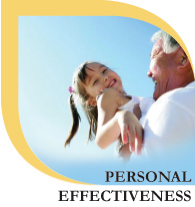Sustained Learning & Development

Sustained learning and development means continually increasing your ability to build and maintain respectful and effective relationships with Indigenous peoples. Central to this competency is appreciating that there are many other cultural understandings of knowledge and ways of working that have legitimacy and deserve respect—and therefore require our continual learning and development, including direct exposure to cultural and community ways.
It includes an eagerness to continually reflect upon and assess your own level of cultural agility and competence, self-awareness and expertise. It means being willing to learn in new and different ways and appreciating how diverse ways of thinking and acting can ensure the success of the BC Public Service in supporting Indigenous self-determination.
Demonstrates the Behaviour When
- Listens with curiosity
- Demonstrates receptiveness to new experiences
- Welcomes and reflects upon different perspectives
- Seeks meaning and applicability in the learning
- Enters into a learning situation in a culturally respectful way
- Challenges oneself to see things differently
- Demonstrates recognition of value of Indigenous cultural knowledge and science
- Applies learning to work
- Reflects upon mistakes and misunderstandings to use as an opportunity to learn
- Confidently and freely shares learning with others
- Acts to maintain an in-depth understanding of key Indigenous issues and their implications
- Goes to Indigenous communities and organizations to learn about their culture and business as part of learning and development plan
- Seeks and utilizes informal learning situations responsibly
- Examines one's own performance and seeks feedback internally and externally to improve performance
- Integrates feedback into development plans and activities
- Designs one's learning and development plans with an eye towards supporting Indigenous self-determination
- Draws upon learning to generate development and change
- Positions the public service and Indigenous peoples for learning and development that leads to mutual success
- Promotes a new way of learning (informal learning) by determining avenues for its measurement and effectiveness
- Creates and supports methods of adapting public service practices to include innovative approaches to learning and development
- Models and champions sustained learning
- Ensures learning and development are ongoing at an organizational level and happening in way that promotes cultural sensitivity
Needs Development When
- Determines learning and development goals for self or direct reports that don't contribute to concrete results
- Shows or expresses resistance to learning and development opportunities
- Demonstrates a closed attitude to trying a new idea, approach or action
- Is satisfied with current knowledge level and sticks to familiar projects and tasks
- Offers feedback that reduces rather than builds opportunities for the development of others
- Resists or criticizes perspectives of others
- Fails to seek feedback, reflect and integrate
- Refuses to consider a change to one's idea or viewpoint based on feedback
- Fails to examine one's own performance
- Demonstrates lack of cultural sensitivity in learning and development situations that call for it
- Waits for others to instruct on new approaches
- Is reluctant or refuses to engage in learning from Indigenous people
- Takes steps to upgrade skills and knowledge only when directed to
- Minimizes performance shortfalls and views them as unchangeable
- Attends courses/conferences that do not address a specific learning need
- Does not apply learning to work and relationships
- Unable to share knowledge of Indigenous relations in context of current job
- Refuses to support others in learning and gaining knowledge through informal means
- Generates change without adequate knowledge
- Fails to ensure accountability (clear purpose and outcomes, application on job) of employees when they utilize informal learning opportunities
